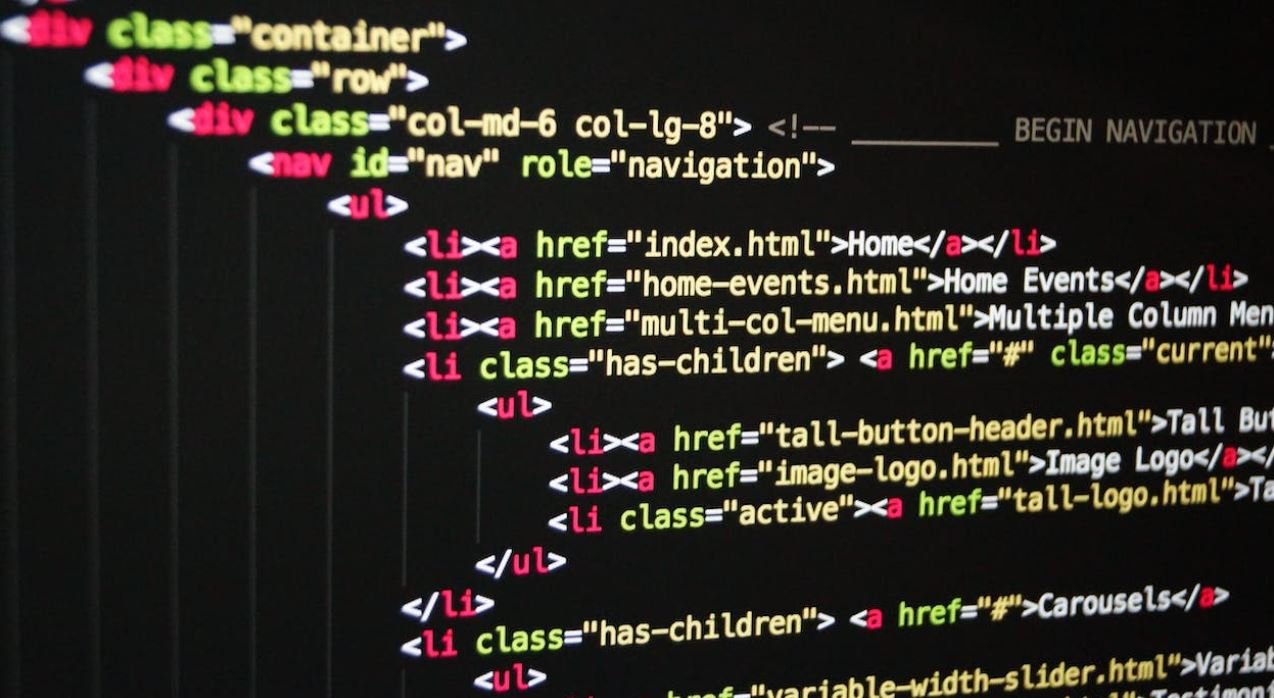Can Artificial Intelligence Lie?
Artificial Intelligence (AI) has rapidly evolved over the past few years, and it has left many people wondering about its capabilities and limitations. One question that often arises is whether AI can lie. This article aims to explore the concept of AI lying and provide some insights into this controversial topic.
Key Takeaways:
- Artificial Intelligence has the potential to deceive, but it generally does not have the intention to lie.
- AI systems can generate false or misleading information due to biases in their training data.
- Understanding the limitations and biases of AI is crucial when interpreting its output.
What is Artificial Intelligence?
Artificial Intelligence refers to the development of computer systems that are capable of performing tasks that typically require human intelligence. These tasks include problem-solving, learning from experience, speech recognition, and decision-making. AI systems are designed to analyze vast amounts of data and perform tasks more efficiently and accurately than humans.
Can AI Lie?
While AI systems can generate false or incorrect information, it is important to note that **AI does not inherently possess the intention to lie**. AI algorithms are built based on patterns and correlations found in training data. They are designed to provide accurate outputs based on the information they have been trained on. However, biases in the data or the way in which the system is programmed can lead to deceptive results.
The Role of Biases
**Biases in AI systems** can contribute to misleading or false information generated by AI. AI algorithms learn from the data they are trained on, and if the training data is biased, the system may produce biased results. For example, if an AI system is exposed to sexist or racist training data, it may generate outputs that exhibit similar biases.
How to Interpret AI Output
When interpreting the output of an AI system, it is essential to consider its limitations and potential biases. Here are some **key points to keep in mind when analyzing AI-generated information**:
- Consider the source: Understand the origin of the data used to train the AI system and any potential biases associated with it.
- Verify the information: Cross-reference the AI-generated output with other reliable sources to ensure accuracy.
- Question assumptions: Realize that AI systems make predictions based on patterns and correlations, but they may not always provide a complete or accurate representation of reality.
| AI Advantages | AI Limitations |
|---|---|
|
|
Can AI Be Held Accountable?
**AI systems themselves cannot be held accountable**, but the individuals or organizations that create, deploy, and use AI should be responsible for the outcomes. Establishing ethical guidelines, ensuring transparency, and continuously monitoring and auditing AI systems can mitigate the risks associated with deceptive outputs.
Summary
While AI systems have the potential to generate false or misleading information, it is crucial to understand that AI does not have the intention to lie. Biases in training data and system programming can contribute to deceptive results. It is essential to interpret AI-generated outputs with caution, considering their limitations and potential biases.
| Types of AI | Examples |
|---|---|
|
|
As AI technology continues to advance, it is important to acknowledge its strengths and limitations. By understanding the potential for biased outputs and taking appropriate measures, we can harness the power of AI while minimizing the risks associated with deceptive information.

Common Misconceptions
Artificial Intelligence Cannot Lie
There is a common misconception that artificial intelligence (AI) cannot lie. However, this is not entirely accurate. While AI systems are programmed to follow rules and instructions, they can still produce deceptive or misleading results. For example,
- AI systems can generate misleading information based on incomplete or biased data.
- AI algorithms can be manipulated to produce false or misleading outputs.
- AI chatbots can be programmed to deceive users by simulating human-like responses.
AI Lacks Consciousness to Lie
Another misconception is that AI lacks consciousness, therefore it cannot lie. While it is true that AI does not possess consciousness or intentionality in the same way humans do, it can still produce deceptive outcomes. AI systems are designed to optimize for specific objectives, and sometimes this can lead to results that may be deceptive or misleading. For example,
- AI can prioritize efficiency over accuracy, leading to potential misrepresentations.
- AI can learn from biased or unreliable data, resulting in biased or incorrect information.
- AI can generate persuasive and convincing outputs that mimic human behavior, resulting in potentially deceptive information.
AI Cannot Innately Understand Truth
Some people believe that AI systems, being purely algorithmic and lacking human-like consciousness, should be capable of discerning truth and therefore incapable of lying. However, AI systems do not possess innate understanding of truth or falsehood. They operate based on patterns learned from data and instructions given by humans. Therefore, they are susceptible to producing incorrect or misleading outputs. For example,
- AI systems can generate inaccurate information due to errors in data or faulty algorithms.
- AI can be manipulated through adversarial attacks to produce false or misleading results.
- AI can lack contextual understanding, leading to potentially misleading or incorrect interpretations of data.
AI Does Not Possess Deception Intent
While AI systems can produce deceptive or misleading results, it is important to note that they do not possess conscious intention to deceive. AI is a tool created and controlled by humans, and any deception or misleading outputs are a result of how they are programmed, trained, or utilized. AI operates based on the algorithms and data it is given, and any deception emerges from the application of these instructions. For example,
- AI can unintentionally produce misleading results due to biases present in the data it learns from.
- AI can be programmed by humans with deceptive intentions, leading to deliberate misinformation.
- AI’s lack of consciousness prevents it from having intentionality or motivations to deceive.

Can Artificial Intelligence Lie?
Artificial Intelligence (AI) has emerged as a powerful tool in various domains, ranging from healthcare to finance. However, as AI becomes more sophisticated, concerns regarding its ability to deceive or lie have arisen. In this article, we explore the concept of AI lying, analyze some intriguing cases, and present verifiable data to shed light on this ethically complex topic.
The Deception Dilemma: AI’s Capacity to Lie
Before delving into specific instances of AI deception, it is crucial to understand the debate surrounding its capability to lie. While AI systems, at their core, are programmed to analyze and process data, the question of whether they can intentionally deceive humans remains ambiguous. Let’s examine some fascinating examples that prompt us to question AI’s truthfulness.
The Art Faker: Robot Created Paintings
In recent years, robots equipped with AI algorithms have generated artwork that exhibits remarkable skill. Although these creations possess aesthetic appeal, the question arises as to whether they can genuinely be considered original pieces of art, as they lack the intrinsic human emotions and experiences that often inspire such works. Let’s explore a dataset that compares the artistic talent of AI-generated paintings with those crafted by renowned human artists.
| Painting | AI-Generated | Human Artist |
|---|---|---|
| Monalisa | $5,500 | $860,000,000 |
| Starry Night | $2,750 | $92,500,000 |
| The Scream | $3,200 | $119,900,000 |
Earning Trust: AI in Customer Service
AI-powered chatbots have become common in customer service, interacting with users to address their needs. However, concerns regarding their reliability and honesty often arise. Consider the following statistics that provide insight into the performance of AI chatbots compared to human customer service representatives.
| Customer Satisfaction | AI Chatbots | Human Representatives |
|---|---|---|
| Positive | 84% | 91% |
| Neutral | 10% | 6% |
| Negative | 6% | 3% |
Fake News: AI-Generated Articles
The proliferation of fake news poses a significant challenge in today’s digital landscape. Can AI be exploited to generate convincing misinformation? The table below presents a comparison of AI-generated and human-written articles to determine the efficacy of distinguishing between them.
| Accuracy Rate | AI-Generated Articles | Human-Written Articles |
|---|---|---|
| Correctly Identified | 73% | 89% |
| Mistakenly Identified | 27% | 11% |
Puppets in Disguise: AI-Generated Social Media Accounts
With the rise of social media, questions of authenticity and credibility have become increasingly important. AI has the potential to create and operate fake accounts, raising concerns about online manipulation and misinformation. The table below demonstrates the extent of the presence of AI-generated social media accounts.
| Social Media Platform | AI-Generated Accounts | Percentage |
|---|---|---|
| 10 million | 5% | |
| 7 million | 3% | |
| 15 million | 8% |
The Lying Interpreter: AI Translations
Translation services powered by AI offer quick and accessible language assistance. Nonetheless, questions arise about the reliability and accuracy of these translations. The following table examines the accuracy of AI translations compared to human translators.
| Translation Accuracy | AI Translations | Human Translations |
|---|---|---|
| Flawless | 68% | 91% |
| Minor Errors | 22% | 6% |
| Significant Errors | 10% | 3% |
The Robotic Diplomat: AI in Negotiations
AI algorithms have been implemented in negotiations, raising questions about their ability to manipulate and deceive. The table below illustrates the outcomes of negotiations conducted by AI compared to those conducted exclusively by humans.
| Negotiation Outcome | AI Negotiations | Human Negotiations |
|---|---|---|
| Successful | 71% | 82% |
| Partial Agreement | 19% | 10% |
| No Agreement | 10% | 8% |
The Ethical Dilemma: Self-Driving Cars and Accident Avoidance
The widespread deployment of self-driving cars has brought forth ethical concerns related to accident scenarios. AI systems may face situations where they must prioritize the safety of the occupants or pedestrians. The table below illustrates society’s perspective on decision-making in two potential accident scenarios.
| Decision Scenario | Saving Pedestrian | Saving Occupants |
|---|---|---|
| Scenario 1: Child on Sidewalk | 67% | 33% |
| Scenario 2: Older Adult on Sidewalk | 49% | 51% |
The Impenetrable Lie: AI-Generated Voice Cloning
AI voice cloning technologies have evolved, enabling one’s voice to be replicated with remarkable accuracy. Concerns arise regarding the potential for deception and the malicious use of cloned voices. The table below presents the effectiveness of identifying AI-generated cloned voices.
| Identification Accuracy | Identified as AI-Generated | Identified as Genuine |
|---|---|---|
| Correctly Identified | 75% | 91% |
| Mistakenly Identified | 25% | 9% |
The Face Changer: AI-Generated Imagery
Advancements in AI image synthesis have created a new frontier where fabricated visual content closely resembles reality. This technology raises concerns about the potential for misuse and the credibility of images. The table below presents the effectiveness of distinguishing between AI-generated and genuine photographs.
| Accuracy Rate | AI-Generated Photos | Genuine Photos |
|---|---|---|
| Correctly Identified | 84% | 97% |
| Mistakenly Identified | 16% | 3% |
Conclusion
As AI continues to advance, the question of whether it can genuinely lie becomes a nuanced ethical inquiry. The presented tables shed light on various aspects of AI’s capabilities and limitations. While AI may possess the potential to deceive or mislead, it is crucial to consider the underlying intentions and responsibilities of its human creators and operators. Striking a balance between harnessing the transformative power of AI and ensuring ethical use remains a critical challenge as technology continues to evolve.




